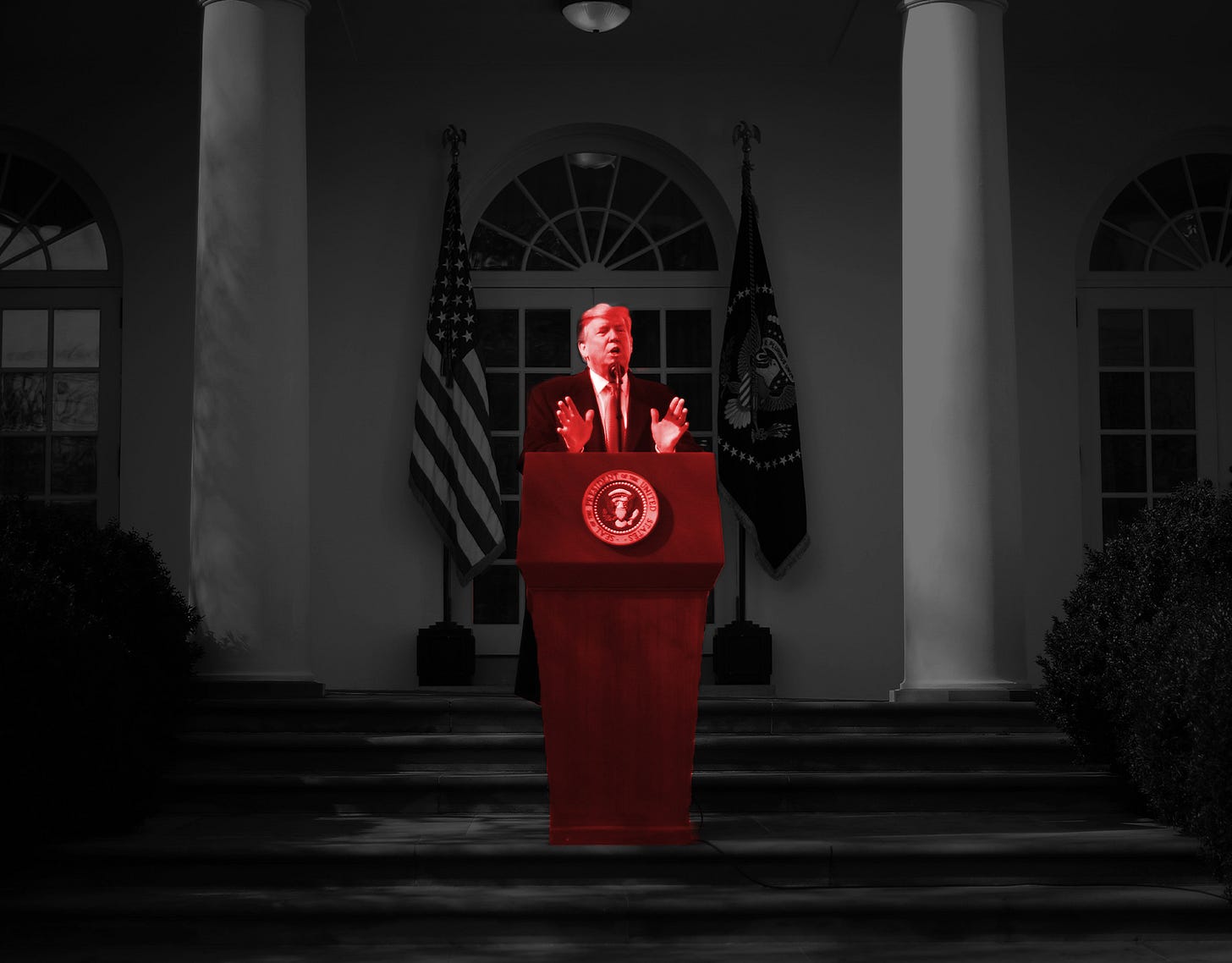Pardoning War Criminals Isn't Just Wrong. It Hurts the Military and American Interests.
President Trump, who seems to see himself as a decidedly pro-military president, has issued one pardon and begun publicly musing about more of them for convicted American war criminals. It is difficult to think of an action he could take that would be more harmful to our military.
Alexis de Tocqueville used the phrase “enlightened self-interest” to summarize President Washington’s farewell address. We Americans pride ourselves for having a moral military that goes beyond its immediate self-interest. Enlightened self-interest means thinking about the impacts of one’s actions beyond the immediate future. President Trump might think that his pardons are helpful to the military in the here and now. Perhaps he thinks he is supporting the men and women who fight from persecution by government bureaucrats. But these pardons will be incredibly harmful to the long-term interests of the military, specifically, and the United States, in general.
Carl von Clausewitz, the greatest military strategist of all time, spoke of the relations between the civilians, the society, and the military, often regarded as Clausewitz’s holy trinity. Clausewitz fixated on the relationships among this trinity of institutions because they are among the most important elements of strategy.
Why? In his landmark book Supreme Command, Eliot Cohen made the definitive case for civilian authority over the military. This is not an obvious conclusion. The simplistic view is that military leaders understand war and civilian leaders are merely politicians or pencil pushers. But war is politics by other means. Which is why politicians should be in charge of it. The Union won the Civil War because of President Lincoln’s obsessive oversight of war efforts, in which he routinely replaced the commanders of the Union Army because their military goals were not in sync with his political vision. By the same token, Winston Churchill frequently overruled his military commanders, and this helped Britain resist the German war machine until the United States joined the war.
But think now about how Trump’s pardons might affect our military’s relationship with the commander in chief.
The former American servicemen convicted of war crimes were found to have disobeyed legal orders given by their commanders. Trump’s pardon is a rebuke to those legal orders. It places the commander in chief in the position of telling that soldiers lower in the chain of command that maybe they can do whatever they like. For the vast majority of our soldiers, sailors, airnmen, marines, and guardsman—who serve with honor and integrity—Trump’s pardons undermine and insult their righteous service. And in the long run, this can only sow distrust of civilian leadership within our military.
Then there is society at large. In our representative democracy, it is incredibly difficult to win a war without the support of the American public. Again: War is a political act. So within the context of liberal democracy, war can be viewed as an expression of public will. If the public does not support a war, then the war cannot be prosecuted successfully.
When you understand war in that way, you see why public support for the military itself is a key part of our national interest: If the public distrusts or disrespects the nation’s armed forces, then it will be harder to sustain the will for military operations in the future. A country which lacks the will to fight is weak. And weakness is a provocation.
Having the commander in chief condone war crimes will almost certainly lead to diminishing respect for the military by the public at large. And in the long run, this becomes dangerous.
Which brings us to another problem: Another element of the trinity is the relationships of the military with the governments and the societies that host it abroad. The easiest phase of a war for the United States military is overthrowing a hostile government, as seen in Iraq and Afghanistan. The hard part is providing security and postwar stabilization. The Surge in Iraq is a good example of how a military that provides protection and comfort for native civilians and is seen as a moral force will be welcomed. And this welcoming attitude makes it easier to obtain our national objectives. A military that is seen as immoral will get no such welcome. If you want a stark example of this, consider the difference between how the Americans and the Soviets were greeted after liberating Europeans from the Nazis.
And then there is the question of alliances.
Whatever one thinks about the military expenditures of NATO member nations, the truth is that since the end of World War II, America’s allies have been assisting us in our wars, not the other way around. There is no reason to believe that this practice will not continue far into the future.
Yes, America can go it alone if need be. But pursuing military objectives is easier when we have the help of allies. And it it easier to secure such help if the civilian populations of allied countries respect the honor and integrity of the U.S. military. If the populations of, say, Great Britain, or France, come to view America’s military as an organization which does not heed the laws of war, it will make it harder for their leadership and people to support us, even if it is in their national interest.
Sometimes, what is morally right appears to be in tension with what is in the interest of the nation. This is not one of those times. By every measure, failing to hold America’s war criminals to account is wrong. And it is also dangerous and damaging to America’s interests.


